Роберт Бюттнер - Orphan's Destiny
Здесь есть возможность читать онлайн «Роберт Бюттнер - Orphan's Destiny» весь текст электронной книги совершенно бесплатно (целиком полную версию без сокращений). В некоторых случаях можно слушать аудио, скачать через торрент в формате fb2 и присутствует краткое содержание. Жанр: Боевая фантастика, на английском языке. Описание произведения, (предисловие) а так же отзывы посетителей доступны на портале библиотеки ЛибКат.
- Название:Orphan's Destiny
- Автор:
- Жанр:
- Год:неизвестен
- ISBN:нет данных
- Рейтинг книги:3 / 5. Голосов: 1
-
Избранное:Добавить в избранное
- Отзывы:
-
Ваша оценка:
- 60
- 1
- 2
- 3
- 4
- 5
Orphan's Destiny: краткое содержание, описание и аннотация
Предлагаем к чтению аннотацию, описание, краткое содержание или предисловие (зависит от того, что написал сам автор книги «Orphan's Destiny»). Если вы не нашли необходимую информацию о книге — напишите в комментариях, мы постараемся отыскать её.
Orphan's Destiny — читать онлайн бесплатно полную книгу (весь текст) целиком
Ниже представлен текст книги, разбитый по страницам. Система сохранения места последней прочитанной страницы, позволяет с удобством читать онлайн бесплатно книгу «Orphan's Destiny», без необходимости каждый раз заново искать на чём Вы остановились. Поставьте закладку, и сможете в любой момент перейти на страницу, на которой закончили чтение.
Интервал:
Закладка:
The crowd would rev up as the band at the parade’s head marched by.
Then the limo bearing our wounded appeared and the cheers died as though a curtain had been dragged across the crowds.
I think the civilians’ shock was as much from seeing how few of us remained as seeing the wounded. There were high school marching bands nearly as big as what was left of GEF. We had marched past before people even knew we were coming.
I locked eyes with an old man at the curb, a scarecrow wearing a VFW cap in the dun-camouflage pattern that had been current during the Second Afghan Conflict. In the stillness, he cupped a hand to his lips and called, “Why you? Why me?”
I blinked. He had had a lifetime to think about the question and he still couldn’t answer it.
By the time my boots dragged across the Ellipse’s brown grass, my grin stretched like a death mask and my waving arm had turned as wooden as a galley slave’s oar. The reviewing stand, draped in UN-blue bunting as well as red, white, and blue, loomed ahead, backstopped by the Washington Monument’s white obelisk. Atop the flagpoles that ringed the monument the flags of a hundred nations snapped in the wind.
I teared up. Not with soldierly pride but because I knew I was going to have to climb a flight of stairs at the stand’s side to reach the Sec-Gen and the President.
When all the troops at last stood, leg-dead and shivering, on General Washington’s dead grass, the band struck up and played what seemed to be the extended, studio version of every march written since World War I.
This was a soldier’s glory moment. The fact that all I wanted was to sit down tells you how much soldiers love parades.
Finally, silence returned, except for a chorus of arrhythmic clangs as those multinational flags drummed their hoist ropes against their flagpoles.
President Lewis stood — he had sat and watched us slog — and advanced to the lectern in silver-haired glory.
“Welcome home! The world salutes you for a job well done!”
The crowds behind us cheered, their voices snatched away on the wind. Lewis spoke for, by my ’puter, ten minutes. Then he said, “General Wander!”
By the time I stumbled up the stairs to the lectern, the Sec-Gen, an African who looked like mahogany wire in a Savile Row suit, had joined him.
How long we stood there and what was said I don’t recall. I recall I was tired and in pain. I’ve never chipped out the holocast to listen to the speeches.
It must be dull footage. The war had ended almost three years ago. Made-for-holo moments of soldiers reuniting with loved ones didn’t apply for us survivors of the Ganymede Expeditionary Force, since a prerequisite to assignment had been that we had lost our entire immediate families to the Slugs. A ticker-tape parade would have left behind an expensive clean-up, so nothing to see there.
Besides, whatever novelty GEF’s return might have held for the holo audience had worn off as seven hundred other troops had arrived before me over the last weeks, one transport at a time.
I can’t say I minded. I had leave accumulated and five years of back pay, most of it with combat and flight supplements and much of it in officer grade. I just wanted this day to be over.
The Secretary-General looked up from his prompter — I was standing behind him, so I saw that clear glass in front of him was covered in scrolling, blue text, the way data displays on the Battlefield Awareness Monocle of an Eternad helmet. He folded his notes, and the band played “Stars and Stripes Forever,” which I guess was right since we were in America, though soldiers from thirty-one nations besides the U.S. had gone to and come back from Ganymede.
And that was that, I thought.
Fingers closed on my elbow. “General? A word?” The President of the United States steered me beneath the reviewing stand.
Fresh sawdust smell and light filtered through cotton-bunting walls stretched around a two-by-four frame. It was hardly the Oval Office. A Secret Service man stood at the door while another hovered, in earshot but acting like he wasn’t listening.
“Jason — may I call you Jason?” He was the most powerful man on Earth. He could call me whatever he chose. Whatever else I may have thought of Lewis, the guy was disarming. He wore the whitest shirt I had ever seen, his teeth matched it, and he showed them in that famous former senatorial grin.
“Jason, you performed a wonderful service. You all did.” Then his eyelids sagged like a funeral director’s. “I’d like to have a word with you about your new assignment.”
O boy. Here it came. Lewis was about to break the news to me that I was being busted back from general to platoon leader.
If only he knew I didn’t mind. I lacked the life experience to thrust and parry with diplomats, staff officers, and members of a House Appropriations Committee. Getting busted back to lieutenant was going to be a relief.
“Of course, sir.”
Wind snapped the bunting wall up and wedged it into the two-by-fours, letting the view in. The Secret Service man interposed himself between us and the view and reached to tug the cloth barrier back down.
The President waved him away and pointed up the Mall, toward the Capitol dome. The National Gallery was somewhere off on our left, the Smithsonian museums on our right. The most powerful man on Earth leaned close enough that I smelled peppermint on his breath. “Jason, have you been to Washington before?”
“Yes, sir.” Class trip. On and off the bus. If it’s Tuesday, that must be the rocket-ship museum.
“The Mall. It’s the essence of America, isn’t it?”
“If you mean a place where the National Park Service sells overpriced hamburgers, I suppose so. I’d have thought Arlington Cemetery, sir.” I winced. Four hours back from outer space and I was as insubordinate as a high school dick again.
The President clapped me on the shoulder, threw his head back, and laughed, too sincerely to be real. “They said you’d have a chip on your shoulder.” He sighed.
I cocked my head. He might want to break it to me gently, but how hard could it be to tell me I was going to be an infantry platoon leader?
“Jason, do you know what it cost to send a member of the Ganymede Expeditionary Force into battle?”
“One life. That’s the only number that matters.”
“Of course. Of course.” He looked away and licked his lips. “I’m asking you to step back emotionally, see the cost of national defense, worldwide defense, objectively. Like the general you are.”
“I’m no general.”
“The world thinks you are. It thinks you saved it. You symbolize the shield the military provides. For all Americans. For all humanity.” He stretched a smile. “When you think of America, what do you think of?”
I shrugged. Traffic jams? Infomercials?
“Prosperity!” The President punched air. “Not just for Americans. America is the engine that pulls the train of the world economy. Jason, the Slug War killed sixty million people. After subtracting defense spending, the current, combined Gross National Products of the UN’s member nations today equals China’s, pre-war. It will take years before Americans can think about buying a new holoset, much less about taking the kids to Virtuworld. That’s why Margaret Irons got chased out of the White House.”
I inclined my head. “Sir, what does this have to do—?”
“Jason, we have to return the world economy to a peacetime footing. President Irons’s deficits left humanity with a bleak future.”
“If she hadn’t spent that money, humanity wouldn’t have a future.”
Lewis stopped and turned to me, hands on hips, eyes narrow as he let the mask slip. “Margaret Irons was your commander-in-chief. Now I am. Do you have a problem with that, General?”
Читать дальшеИнтервал:
Закладка:
Похожие книги на «Orphan's Destiny»
Представляем Вашему вниманию похожие книги на «Orphan's Destiny» списком для выбора. Мы отобрали схожую по названию и смыслу литературу в надежде предоставить читателям больше вариантов отыскать новые, интересные, ещё непрочитанные произведения.
Обсуждение, отзывы о книге «Orphan's Destiny» и просто собственные мнения читателей. Оставьте ваши комментарии, напишите, что Вы думаете о произведении, его смысле или главных героях. Укажите что конкретно понравилось, а что нет, и почему Вы так считаете.

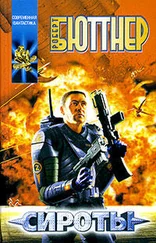

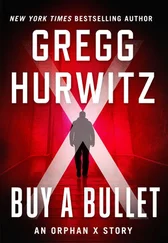
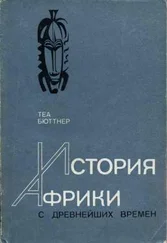
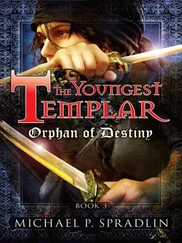
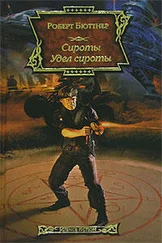
![Дэн Бюттнер - Где живет счастье [Правила жизни самых счастливых людей планеты] [litres]](/books/395574/den-byuttner-gde-zhivet-schaste-pravila-zhizni-samyh-thumb.webp)



